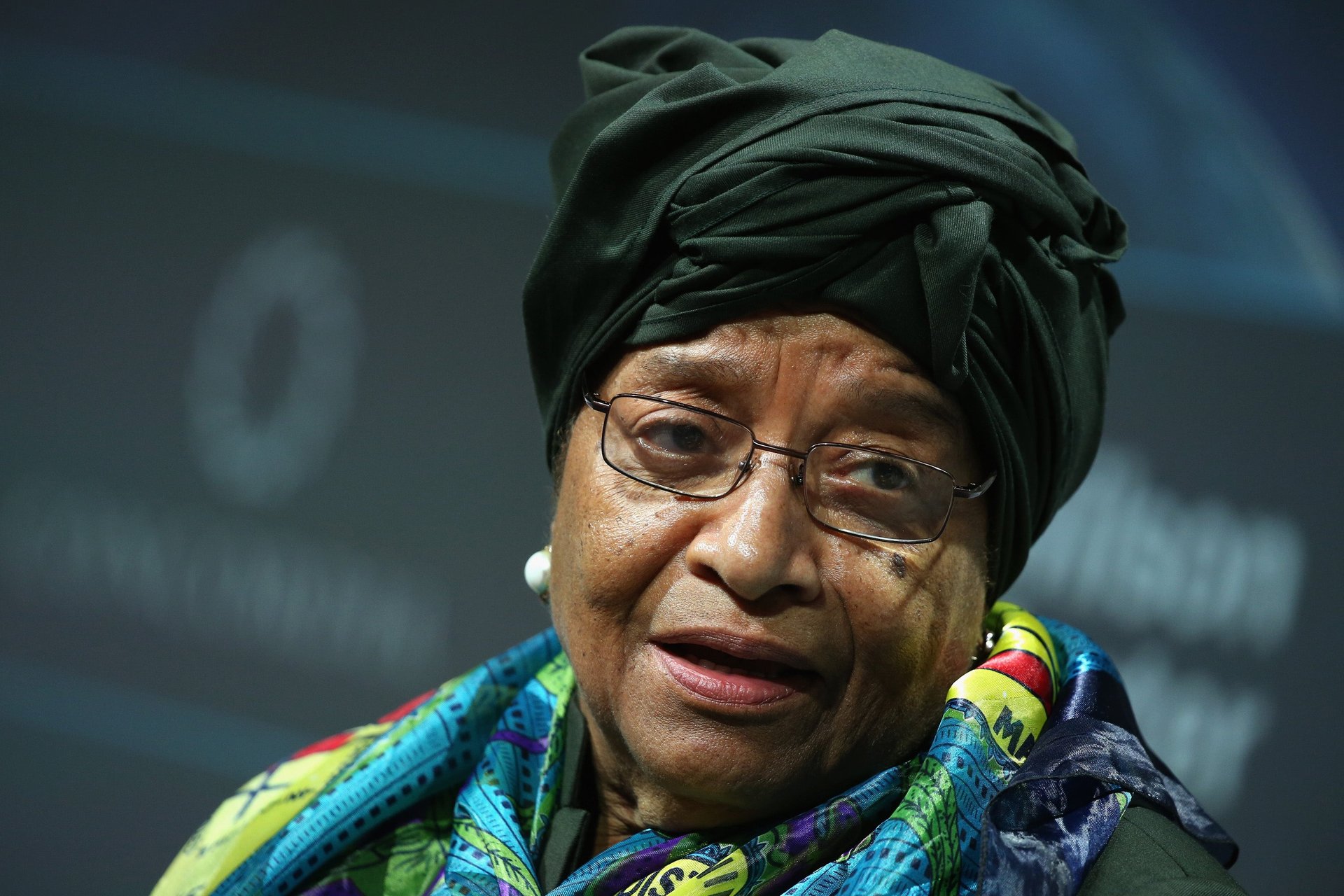Where are Nigeria’s women in the upcoming elections?
H.E. Ellen Johnson Sirleaf and ACET founder and president Dr. K.Y. Amoako speak on the lack of female representation in Nigerian and African politics

This year, Africa will see presidential elections in 10 of its countries. This is an excellent opportunity for more women to take up the mantle of leadership at all levels, but it will be an uphill battle.
Nigeria’s elections are first up, and women’s progress toward high leadership positions unfortunately leaves much to be desired. Since it gained independence in 1960, Nigeria has not had any women presidents or vice presidents. It has not elected any female governors across its 36 states. Its proportion of women representatives in both legislative chambers does not exceed 7%. The country’s national average of women’s political participation has remained around 6.7% in elective and appointive positions, far below the global average of 22.5%.
In Nigeria, women and girls account for half of the population, and therefore represent half of its potential as an African nation. For Nigeria to prosper and progress, it must increase the representation of women in decision-making positions.
Nigerian women are global leaders
Nigeria’s equity challenge did not arise because of a lack of leadership potential in its women. Nigerian women are a shining beacon of public leadership on the global stage. Dr. Ngozi Okonjo-Iweala is serving as the director-general of the World Trade Organization. Amina J. Mohammed is the UN deputy secretary-general and chair of the UN Sustainable Development Group. Dr. Jumoke Oduwole is currently serving as special advisor to the president of Nigeria on ease of doing business.
These and countless others—including women who are part of the Amujae Leaders initiative started by Africa’s first democratically elected female President, Ellen Johnson Sirleaf, to raise the next cadre of Africa’s female leaders are among that list. Amujae Leaders such as Dr. Adaeze Oreh, Hadiza Bala Usman, Tejumola Abisoye, and Ifeyinwa Maureen Okafor are a few of the fine examples of Nigerian women creating new leadership legacies that inspire women and girls in Nigeria, Africa, and beyond.
Why are Nigerian women left out?
Nigeria’s equity challenge stems from other deep-rooted issues, which are mirrored in many other African countries. Numerous social and cultural barriers stand in the way of women and girls’ economic, social, and political attainments. High levels of illiteracy also undermine their ability to develop skills and access opportunities that would allow them to meaningfully engage in decision-making at all levels in society, and run for office if they choose to.
These issues are compounded by the inaction of current political leadership. Only recently, Nigerian lawmakers rejected a number of bills that would open the door for increased representation of women in politics, including legislation mandating that women fill 35% of appointed positions in government and 35% of elective positions. The current rate of women candidates for the upcoming elections is not encouraging.
The Nigerian women who are making strides in public leadership locally and globally are fighting against all odds in addressing inequality.
African women in politics
Several African nations are making strides in women’s representation in public leadership. According to the Ellen Johnson Sirleaf Presidential Center for Women and Development’s Data Hub for Women’s Leadership in Public Governance, Senegal has a 43% representation of women in its National Assembly. In Cabo Verde, following the introduction of a Parity Law in 2019, the percentage of women elected to local assemblies rose from 22% to 41.5% and the number of women elected to the National Assembly rose from 26.7% to 37.4%.
Today, Rwanda ranks first globally in the number of women in parliament at a rate of more than 60%. And yet, these few countries do not represent the norm across the African continent. To date, African countries have had only 22 women heads of state and only one was elected during a national election such as the ones we will see this year. We hope the elections this year will lead to Africa’s second elected female president.
There’s an obvious moral imperative for moving women into positions of power and decision-making, but the economic case is equally urgent, and it has important ties to leadership. Women make up 21% of political leadership positions and manage only about 19% of government budgets on average across Africa. This despite unequivocal evidence about the impact of women’s access to political decision-making roles on individuals and societies, from improving access to basic services to boosting economic growth and driving national gender equality policies.
For example, research suggests that countries led by women had “systematically and significantly better” covid-19 outcomes. Women’s political participation has also proven to be crucial for democracy, peace-building, stability, and economic growth, and according to the African Center for Economic Transformation (ACET), achieving gender equality in African societies is critical for transforming economies to ensure lasting, inclusive growth.
We call on whoever wins the election in Nigeria, and the subsequent elections across the continent, to create a social, economic, and political environment that encourages African women to put themselves forward for political office. Leaders should commit to eliminating the barriers that prevent women from climbing the ladder of leadership, starting with inclusive legislation that enshrines their right to political representation. This will pave the way for more women to run for office and take up positions of leadership in the coming years—an imperative for Africa’s transformation.
H.E. Ellen Johnson Sirleaf is the former President of Liberia and founder of the Ellen Johnson Sirleaf Presidential Center for Women and Development. Dr. K.Y. Amoako is the former executive secretary of the UN economic commission for Africa and now founder and president, of the African Center for Economic Transformation (ACET.)
